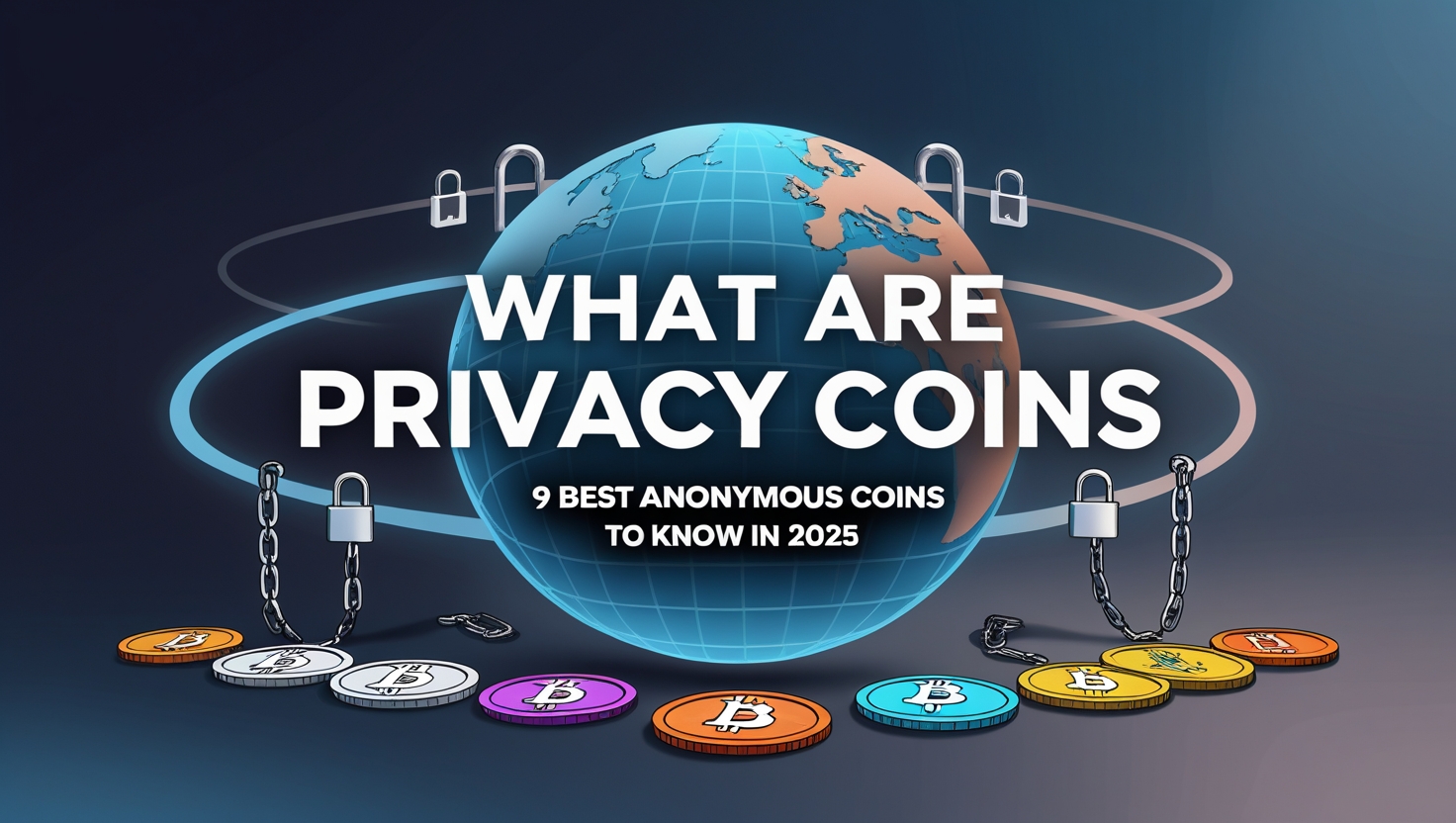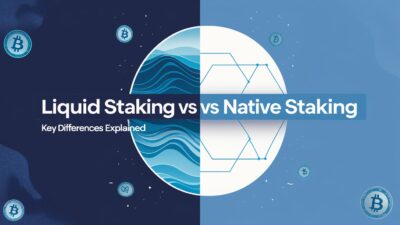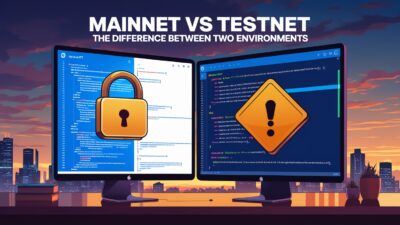
Did you know that in the first quarter of 2025, almost 11.4% of cryptocurrency transactions involved privacy coins? This marked a notable increase from 9.7% in 2024 and underlined a growing demand for anonymity in the digital finance world.
Privacy coins are cryptocurrencies that are built using advanced cryptography to hide details of the sender, receiver, and the amount. This protects personal financial privacy, safeguarding business transactions and empowering people in unstable economies.
However, it does come with the trade-off of money laundering and illegal activities that result in the delisting or banning on many exchanges.
Privacy Coins Explained
Privacy coins are a specialized category of cryptocurrency that prioritizes anonymity and financial confidentiality. Unlike traditional digital assets, like Bitcoin or Ethereum, where transaction amounts and wallet addresses are publicly visible, privacy coins use cryptographic techniques to hide sensitive information about senders and receivers and the exact amounts exchanged from public view.
The main difference between cryptocurrency and privacy coins is that a regular cryptocurrency offers pseudonymity, which means transactions are linked to public addresses rather than an identity. In contrast, privacy coins maintain anonymity or strong confidentiality.
The following tools create an additional layer of financial privacy while maintaining blockchain integrity:
- Ring Confidential Transactions (RingCT): Groups multiple transactions together, hiding the sender’s identity.
- Zk-SNARKs (Zero-Knowledge Proofs): Allow transaction verification without revealing its content.
- CoinJoin and Mix Protocols: Merges multiple user transactions into one, making tracing difficult.
How can Privacy Coins be Beneficial?
The benefits of privacy coins extend beyond simply hiding transactions.
- Financial Privacy: Users can keep their spending or financial dealings private from competitors or the general public.
- Censorship Resistance: Prevents tracing of transactions for users belonging to regions with politically unstable or authoritarian governments.
- Protection from Surveillance: Businesses can secure sensitive transactions from competitors.
- Personal Security: Privacy coins mitigate the risk of hacking, phishing, or physical theft by keeping wallet balances and transaction histories confidential.
Top 9 Privacy Coins to Watch
The table below lists the nine best privacy coins 2025 based on market capitalization, regulatory developments, and adoption potential.
| Privacy Coin | Market Cap | Launch Year | Privacy Type | Default Privacy |
| Monero (XMR) | $4,988,690,489 | 2014 | It uses the default privacy using three core technologies: Ring Signatures, Confidential Transaction (RingCT), and Stealth Addresses | Yes |
| Zcah (ZEC) | $760,196,871 | 2016 | Shielded (private) and transparent (public) transactions, using zk-SNARKs technology to provide optional anonymity for its users | No |
| Dash (DASH) | $307,364,015 | 2014 | Optional privacy through its PrivateSend feature | No |
| Oasis Network (ROSE) | $180,313,596 | 2020 | Privacy-focused blockchain network | No |
| Beldex | $547,122,174 | 2018 | Privacy-first architecture built on the CryptoNote protocol and features like RingCT, stealth addresses, and ring signatures | Yes |
| Decred | $280,315,358 | 2016 | Optional, integrated privacy system using CoinShuffle++ protocol | No |
| Worldcoin (WLD) | $2,131,621,781 | 2023 | A cryptographic method called zero-knowledge proofs (ZKPs) | No |
| Secret (SCRT) | $54,671,450 | 2020 | Privacy-first approach and hardware-based Trusted Execution Environments (TEEs) | No |
| OriginTrail (TRAC) | $180,699,596 | 2018 | Zero-knowledge proofs and Trusted Execution | No |
1. Monero (XMR)
Launched in 2014, Monero is a recognized privacy coin built on the CryptoNote protocol, a privacy-focused blockchain design originally forked from the Bytecoin cryptocurrency. It uses Ring Signatures, RingCT, and Stealth Addresses to ensure every transaction is private by default. This privacy coin is designed to be fungible, making it impossible to blacklist specific coins.
2. Zcash (ZEC)
Zcash (ZEC), launched in 2016, introduced zk-SNARKs, a zero-knowledge proof system that enables transaction verification without revealing information about the sender, receiver, or transaction amount. Users of this privacy coin can opt for either private or public transactions, providing flexibility for compliance purposes.
3. Dash (DASH)
Dash was originally launched as Darkcoin in 2014, and since then, it has evolved into a payment-focused cryptocurrency that emphasizes efficiency and speed. Its PrivateSend feature allows users to mix transactions for added anonymity. This is a low-fee privacy coin that offers instant transactions.
4. Oasis Network (ROSE)
Oasis Network is a layer-1 blockchain designed for increased scalability and data privacy. Launched in 2020, this privacy coin focuses on confidential smart contracts that protect user data and allow them to share or hide it selectively.
5. Beldex
Launched in 2018, Beldex uses the CryptoNote protocol and technologies like RingCT and stealth addresses to anonymize transactions by default. Beldex is a perfect example of an enterprise-friendly privacy solution that implements anonymity in community and digital interactions.
6. Decred
Decred uses Proof-of-Work and Proof-of-Stake governance systems powered by the CoinShuffle++ protocol that allow users to anonymize transactions. Launched in 2016, this coin has no default privacy.
7. Worldcoin (WLD)
Launched in 2023, Worldcoin combines digital identity and cryptocurrency, and by using biometric verification and zero-knowledge proofs, it allows users to prove their identity without sharing their personal data.
8. Secret (SCRT)
Secret Network allows developers to use “Secret Contracts” to create decentralized applications where sensitive information stays encrypted, even while being processed. Launched in 2020, this coin extends privacy features to application logic, user data, and transactions.
9. OriginTrail (TRAC)
Launched in 2018, OriginTrail uses zero-knowledge proofs and privacy-preserving technologies to allow businesses to share verified data without sharing sensitive information.
Risks and Regulatory Implications of Privacy Coins
Anonymity features like ring signatures, stealth addresses, and zero-knowledge proofs pose a unique challenge to regulatory and centralized exchanges as they obscure sender and receiver information and transaction amounts. While these design elements protect financial privacy in authoritarian environments, safeguard individuals from surveillance, and preserve financial freedom, they also provide ample utility to illicit actors.
Privacy coins are frequently exploited for money laundering, tax evasion, darknet market transactions, and terrorist financing. Moreover, law enforcement makes tracing transactions extremely challenging, prompting investment in advanced forensic tools and international cooperation to prevent the misuse of privacy-centric cryptocurrencies.
Governments and exchanges have increasingly responded with restrictions. For example, Japan, South Korea, and Australia banned privacy coins in 2018, resulting in the delisting of coins such as Dash, Zcash, and Monero. Moreover, Dubai and the European Union joined the additional jurisdiction in 2023. In response to these regional restrictions, mainstream crypto exchanges like Bittrex, BitBay, Huobi, and Kraken have removed restrictions for privacy coins. In 2025, these developments show that while self-custody and peer-to-peer channels remain viable for accessing privacy coins, they also raise compliance challenges and limit institutional adoption in jurisdictions with strict AML and KYC mandates.
Where can You Buy Privacy Coins?
You can buy privacy coins in three main ways:
- Centralized Exchanges (CEXs): Some exchanges still list coins like Zcash or Monero, while others, such as Kraken or Binance, have delisted them due to regulatory requirements. CEXs are beginner-friendly and support fiat, but they do require KYC.
- Decentralized Exchanges (DEXs): Platforms like Uniswap or Bisq allow you to swap tokens directly from your wallet without KYC, but offer strong privacy and self-custody.
- Peer-to-Peer (P2P) Platform: LocalMonero, Bisq, and Binance P2P directly link buyers and sellers. Some allow minimal KYC depending on the payment method. Each platform has Escrow systems added for security.
Want to Learn More About Crypto DeFi? Join Dypto Crypto Today!
Privacy coins and decentralized finance are complex and rapidly evolving spaces, where staying informed is crucial. This is where Dypto Crypto comes in with its engaging and comprehensive crypto education.
Dypto simplifies DeFi concepts through interactive courses, quizzes, and real-world case studies. These courses reward you with points as you climb the leaderboard in a supportive environment.
If you want to master your crypto journey, sign up at Dypto Crypto today!
FAQs (Frequently Asked Questions)
Q: Are privacy coins legal?
Yes, privacy coins are legal in many countries, but some regions have banned them due to regulatory concerns.
Q: Why are privacy coins banned on some exchanges?
Exchanges ban privacy coins to comply with strong financial regulations, like the Travel Rule, that demand collecting sender/receiver data. The core technology of these coins is that it makes data collection impossible.
Q: Which privacy coin is the most anonymous?
Monera (XMR) is the most private because of its advanced cryptography to hide the sender, receiver, and amount.
Q: Can privacy coins be tracked?
Due to the cryptography features, privacy coins are difficult to track, but blockchain analysis and metadata can sometimes reveal the activity.


























































































